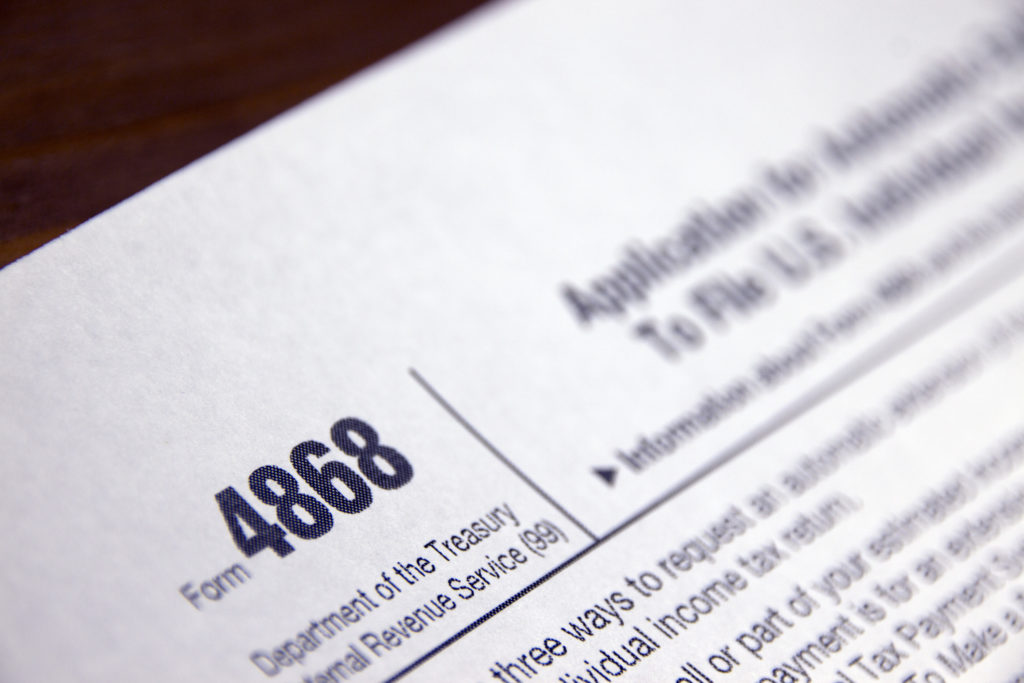- The most important reason to file an extension is that if you do not file one by the May 17, deadline, you might face a failure-to-file penalty if you owe money. Without a valid extension, a late filed return is subject to a 5% penalty per month on any unpaid balance. This penalty tops out after 5 months or 25% of your tax. The exception to this failure to pay penalty is if you file an extension and you pay at least 90% of your actual tax liability by May 17, then you will not be assessed the failure-to-pay penalty if the remaining balance is paid by the extended due date which is October 15. By having 90% of your tax liability paid in, filing an extension gives you several extra months to come up with the remaining 10% balance owed to the government at a relatively low interest rate of 3%.
- A second reason to file an extension is if you do not pay all the tax due by the due date, you could face a failure-to-pay penalty. The failure-to-pay penalty is ½ of 1% of your unpaid taxes for each month the taxes are not paid after the due date which is 6% per annum. This penalty is assessed on any taxes not paid by May 17 if the outstanding amount is more than 10% of the total tax due. It can increase to up to 25% of the unpaid taxes. The failure-to-file penalty is generally more than the failure-to-pay penalty. So, if you cannot pay all the taxes you owe, you should still file an extension to avoid the failure to pay penalty. Keep in mind that if both the failure-to-file penalty and the failure-to-pay penalty apply in any month, the 5% failure-to-file penalty is reduced by the failure-to-pay penalty.
- The third reason is if you do not pay all the tax due by May 17, interest will be due on any amount not paid. Currently the interest rate on underpayments is 3% per year. If you file your return more than 60 days after the due date or extended due date, the minimum penalty is the smaller of $135 or 100% of the unpaid tax.
- The fourth reason to file an extension is even if you expect a refund, filing a valid extension permits you to defer funding a self-employed retirement plan (SEP IRA). Note than this does not apply to a regular IRA, Roth IRA or Coverdell Education Savings Account. It also enables self-employed individuals to even delay opening a SEP IRA as late as the extended due date as a well as funding it. One strategy we often implement for our self-employed individual clients is to pay all taxes deemed due with an extension and then funding the retirement later by the extended due date of October 15.
Keep in mind you will not have to pay a failure-to-file or failure-to-pay penalty if you can show that you failed to file or pay on time because of reasonable cause and not because of willful neglect. Extensions until May 17 are automatic in 2021, or until June 15 for those affected by winter storms in Texas, Louisiana, and Oklahoma. The IRS might provide administrative relief and waive the penalties if you qualify under its First Time Penalty Abatement policy. To qualify, you must not have had any penalties in the prior three tax years. You must also have filed your current year’s tax return on time and paid any tax you might owe. As mentioned above, the IRS might waive the late-payment penalty if you can show there is a reasonable and justifiable reason for not paying on time.
There is a simple way to extend the filing deadline, just file an extension using form 4868, and make sure it is postmarked by May 17. It is only one page and does not even require a signature. If our firm filed your return 2019 1040 return and we did not hear from you, we will automatically file the extension for you. If you have any questions or need help preparing your taxes call Gregory J. Spadea at 610-521-0604.









Speak Your Mind